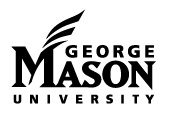 On Monday, August 19, 2013, the Center for World Religions, Diplomacy, and Conflict Resolution opened its second semester of its Iranian Online School for Conflict Resolution and Peace. The first semester had over 70 students, and CRDC was pleased to welcome to the second semester over 130 new students. These students hailed from every corner of Iran and many ethnic groups from Kurds, Turks, and Arabs to Persians, an unprecedented achievement for online work in Iran. This accomplishment was due to the extraordinary and tireless efforts of CRDC’s Director of Iran Programs and SCAR Dean’s fellow, Sahar Namazikhah, the Iran team of CRDC, the CRDC administrative team, and, of course, the commitment of a renown faculty team: Professors Michael Nagler from UC, Berkeley, Marc Gopin from S-CAR, Ramin Jahanbegloo from Canadian York University, Mubarak Awad from American University, Hadi Semati from University of Tehran, Nayereh Tohidi from CSU, Northridge. The active and extraordinary commitment of the students themselves was the most important element of the success.
On Monday, August 19, 2013, the Center for World Religions, Diplomacy, and Conflict Resolution opened its second semester of its Iranian Online School for Conflict Resolution and Peace. The first semester had over 70 students, and CRDC was pleased to welcome to the second semester over 130 new students. These students hailed from every corner of Iran and many ethnic groups from Kurds, Turks, and Arabs to Persians, an unprecedented achievement for online work in Iran. This accomplishment was due to the extraordinary and tireless efforts of CRDC’s Director of Iran Programs and SCAR Dean’s fellow, Sahar Namazikhah, the Iran team of CRDC, the CRDC administrative team, and, of course, the commitment of a renown faculty team: Professors Michael Nagler from UC, Berkeley, Marc Gopin from S-CAR, Ramin Jahanbegloo from Canadian York University, Mubarak Awad from American University, Hadi Semati from University of Tehran, Nayereh Tohidi from CSU, Northridge. The active and extraordinary commitment of the students themselves was the most important element of the success.
The Iranian Online School was an initiative of the Center for World Religions, Diplomacy and Conflict Resolution. The Iranian School was designed to teach Iranian students inside Iran from a wide range of backgrounds how to approach ongoing disputes that cause conflict and how to resolve them through the practical application of nonviolent methods. Students were admitted based on their educational level and their background in social and civil activities, as well as their work experience and interests in social change. Successful students upon finishing their final project were certified by the Center for World Religions, Diplomacy and Conflict Resolution.
The main goals of the Iranian School for Conflict Resolution and Peace included empowering minority groups, improving public knowledge of minority and majority rights, advancing conflict resolution skills, stimulating new ways of preventing racial, ethnic, gender or religious discrimination, and building lasting peace between social groups in an integrated society.
“Conflict Resolution and Minority Rights” was the title of the 2013 school program. The Basic level of this program was successfully offered during the spring of 2013. The Advanced level was begun for the Fall semester. The distinguishing characteristic of this program was that the courses were offered in the students’ native languages. In addition to receiving program materials in Farsi and English, students of Turkish/Azari, Kurdish and Arab descent were provided the opportunity to read selected material, attend classes, and conduct course activities in workshops all using their mother tongues. Our Farsi and non-Farsi speaking professors were internationally renown in their respective fields. In order for students to communicate and learn more effectively, live lectures that were delivered in English were simultaneously translated into Farsi. Our professors even held office hours! Students had the opportunity to ask questions in their native language. These questions were translated and sent to the professor. Responses were translated and sent back, as well as uploaded in the forum so that other students with similar questions could study them.
Classes of the Iran Online School concluded in December 2013.

THE SCHOOL LIBRARY: FIVE LANGUAGES
The course literature was housed in the online School Library, an unprecedented resource for peacebuilding in five languages; English, Farsi, Kurdish, Arabic, and Turkish/Azari. More than 500 pages in the field of conflict resolution, peacebuilding, and nonviolence were carefully selected under supervision of S-CAR faculty. The selected material consisted of excerpts from 22 books and over 30 articles. All these materials were been translated into Farsi, Kurdish, Azari/Turkish and Arabic and made available online through the school’s portal.
The school’s operating theory is that empowering minority groups, as well as cooperation and collaboration between the majority and the minorities, is key to resolving internal tensions and preventing destructive conflict. The educational and intellectual empowerment of our students through this program is meant to instill in the student’s a sense of her/his ability to make a difference, and a way to participate in change at the level of the social, political and cultural structures of minorities. While leading toward this goal, empowerment through peace education in this school is treated carefully in a way that does not entail paternalism nor lead to a new form of social control over minorities by majorities or external actors. Learning how to manage crises and resolving them peacefully are all achieved through public participation and cooperation between the majority and the minorities in a joint educational process of learning the skills of conflict resolution and peacebuilding. Peace education is based on the assumption that not only peace and nonviolence, but also empowerment can be learned.
